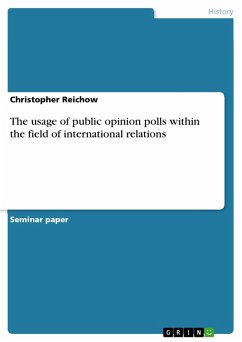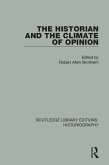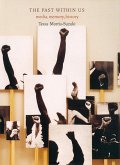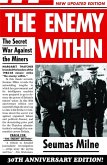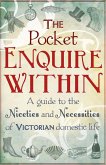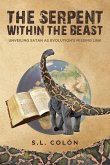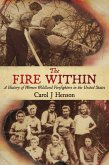Seminar paper from the year 2010 in the subject History - Miscellaneous, grade: 1,3, University of Oregon, language: English, abstract: By measuring the public's attitudes, pollsters want to seek the truth and display the people's belief. Polling organizations are claiming to reflect the opinion of millions of people by asking only a representative cross section of society. Every current political, social or economical issue, that is the credo, can be evaluated by the people's opinion. But besides their possible value as a description of the current state or as a prognostication tool, the question arises, if quantitative polls can be used not only as a politological or sociological but as a historical source. By analyzing works about American surveys in West Germany after World War Two, the Israeli-Palestinian relations during the Second Intifada and the influence of the American occupation on the emergence of Iraqi nationalism after the Second Gulf War, this paper wants to examine, if opinion polls can provide a relevant source for historians of international rela-tions. Until the 1960s, historians had not begun to develop scientific procedures to study past public opinions. A long lasting debate was held whether or not public opinion polls could be applied to the interpretation of history. Still, opinion polls are only used sparingly in historiographical fields. But more and more historians have incorporated this "hostile" sociology into their work. The here presented works are a good example for the fact that there is pretty much influence by sociological aspects.
Dieser Download kann aus rechtlichen Gründen nur mit Rechnungsadresse in A, B, BG, CY, CZ, D, DK, EW, E, FIN, F, GR, HR, H, IRL, I, LT, L, LR, M, NL, PL, P, R, S, SLO, SK ausgeliefert werden.

